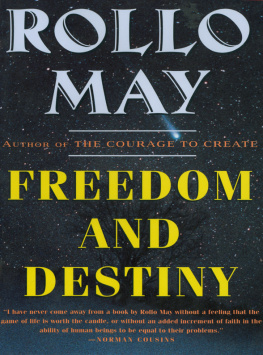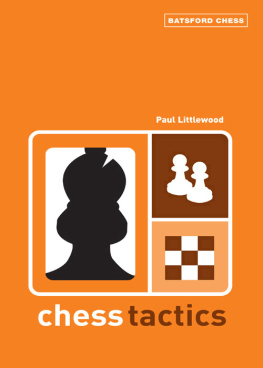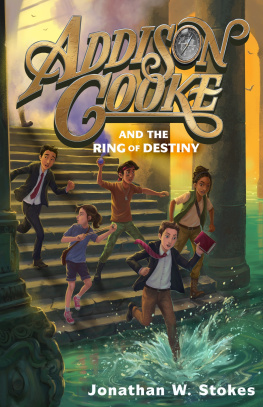Jasper Littlewood-Brennan - Destiny Theory: Scientific Evidence for Destiny
Here you can read online Jasper Littlewood-Brennan - Destiny Theory: Scientific Evidence for Destiny full text of the book (entire story) in english for free. Download pdf and epub, get meaning, cover and reviews about this ebook. year: 2020, publisher: Jasparian Empire, genre: Computer. Description of the work, (preface) as well as reviews are available. Best literature library LitArk.com created for fans of good reading and offers a wide selection of genres:
Romance novel
Science fiction
Adventure
Detective
Science
History
Home and family
Prose
Art
Politics
Computer
Non-fiction
Religion
Business
Children
Humor
Choose a favorite category and find really read worthwhile books. Enjoy immersion in the world of imagination, feel the emotions of the characters or learn something new for yourself, make an fascinating discovery.

- Book:Destiny Theory: Scientific Evidence for Destiny
- Author:
- Publisher:Jasparian Empire
- Genre:
- Year:2020
- Rating:5 / 5
- Favourites:Add to favourites
- Your mark:
- 100
- 1
- 2
- 3
- 4
- 5
Destiny Theory: Scientific Evidence for Destiny: summary, description and annotation
We offer to read an annotation, description, summary or preface (depends on what the author of the book "Destiny Theory: Scientific Evidence for Destiny" wrote himself). If you haven't found the necessary information about the book — write in the comments, we will try to find it.
Destiny Theory: Scientific Evidence for Destiny — read online for free the complete book (whole text) full work
Below is the text of the book, divided by pages. System saving the place of the last page read, allows you to conveniently read the book "Destiny Theory: Scientific Evidence for Destiny" online for free, without having to search again every time where you left off. Put a bookmark, and you can go to the page where you finished reading at any time.
Font size:
Interval:
Bookmark:
Destiny Theory
Check out Jaspers website at jasparia.com
For his latest board games and books
Destiny Theory
Scientific Evidence for Destiny
Jasper Littlewood-Brennan
A book by Jasper Littlewood-Brennan
Published and owned by Jasper Littlewood-Brennan
www.jasparia.com
This first edition was published 10/09/2020
Copyright Jasper Littlewood-Brennan 2020
All rights reserved.
This publication may not be reproduced, transmitted, or distributed in any form in part or in whole by any means, including photocopying, scanning, or other mechanical or electronic methods without prior written permission from the publisher or in the case that a brief quotation is used for reviews, discussions, or other non-commercial uses that are currently permitted by copyright law.
st Edition Amazon eBook
ISBN: N/A
Book design and editing by Jasper Littlewood-Brennan
Cover Image by Canva
The contents of this book are theoretical, and are speculatory naturally. New ideas expressed in this book as of this 1 st publication have not necessarily been accepted by any scientific authority.
The author has created the following theory by using his own ideas and conclusions thought of and deducted by himself of his own accord. The referring to an idea or theory as being his reflects his thinking up and deduction of the concept and does not translate to his ownership of the idea or theory.
Any credit taken for scientific ideas and names of concepts already created or discovered is unintentional. The author and publisher do not claim that ideas in this work and any names associated with them are necessarily original, even in the case that such is stated or suggested in the text.
Any scientific misinformation is accidental and there is no guarantee of scientific reliability or accuracy in the information.
Published through and distributed by Amazon KDP
Authors Note
The intent of this book is not to oppose any religion or philosophy, but instead provide a perspective of insight in the world.
Thank you very much for giving me the opportunity to express this theory of mine.
To all people
Foreword
As the author of this book, there are a few things I would like to clarify before the reader embarks on this text.
First of all, this book is NOT religious or similarly ideological. It may pose philosophical questions, however its nature is fundamentally scientific.
Secondly, the ideas I have thought up and conclusions I have drawn have not been reached with collaboration with anyone else. As such, I cannot guarantee that they are necessarily accurate in that they will be accepted by any scientific institution.
Finally, I acknowledge that the world of science is vast and expansive. Though I have legitimately thought of my ideas in this theory myself including potential laws and concepts and I have deducted my own conclusions, I cannot guarantee that other people havent thought of the same or similar ideas or found the same or similar conclusions. As such, I do not claim that I am necessarily the first person to come up with these ideas.
If I call an idea or concept mine, such as my theory, my law, or my idea, this is because I have come up with the idea without taking it from another source or deducting it in collaboration with other people.
This is irrespective of whether another person or organization has come up with the same or a similar concept, theory, or idea first. It refers simply to my thinking up and deducting of the idea, concept, or theory and does not represent any ownership of the idea, concept, or theory.
What I can tell you is that I have thought through my ideas thoroughly and that I have pieced them together in a well thought out way. I have created this book as an attempt to share these ideas I have come up with and give potentially new insight to the world.
Introduction
People have been arguing about destiny for thousands of years. Its emergence came into being with religions and philosophies.
Since then it has widely been a topic of debate, with many different standpoints of opinion. The main three include the support believing that we have a destiny and that there is one predetermined outcome for every moment. I call this a type 1 destiny.
Those against the idea of destiny often thought that ones greatness is an outcome of the choices they make, and that those choices were completely up to them. They believed that no destiny ruled their future.
The third major opinion was that people had a destiny as well as many untimely fates, and that it was up to them to make sure they achieved their destiny. I call this a type 2 destiny.
This book is not about either religion or philosophy but is purely about a scientific idea of mine relating to the concept of destiny.
This brings us back to the main question. Is destiny real and, if so, do we have any control over it?
Following is my theory on Destiny, which I call Destiny Theory.
Fundamentals
Destiny Theory is the theory referring to the existence of what I call a type 1 or true destiny.
I also refer to it as ultimate destiny, as it is, in essence, the guarantee of one specific ultimate outcome for any moment in time for the universe as a whole, including an outcome for every subject within it, which has a 100% chance of happening.
As I see it, here are the two types of destiny.
Type 1 Destiny: true or ultimate destiny. This is where everything that occurs in the universe was predetermined since the Big Bang.
The future of all life forms, their choices, the outcomes, and the ultimate destiny of the universe itself. It includes absolutely everything. Including the decisions lifeforms make.
Type 2 Destiny: Controlled destiny, or the presence of a destiny which doesnt necessarily need to be fulfilled. This incorporates the prospect of choice to be separated from destiny.
For example, you were given an option whether or not to accept a suitcase of counterfeit banknotes, and whilst in reference to type 1 destiny your choice and the outcome are predetermined, according to type 2 Destiny, your choice is undetermined by destiny and will instead set a path in destiny that you will move down.
In this book, I will explain my reasoning for believing in a type 1 destiny and give you the concepts that suggest the truth behind this theory.
We will be examining the relationships of fundamental laws and how they play a role in suggesting the nature of our universe. The way age old fundamental laws govern our universe has led me to propose my theory about destiny.
What I call Destiny Theory.
Behavioural Laws
The importance of the conservative nature of this universe is the predictable nature of all within it, including its particles.
There are specific behavioural laws which govern the way things operate. For example, heated water being less dense tends to rise above cooler, denser water. These behavioural laws are constant.
The constant nature of these behavioural laws is the basis by which I conclude that an identical test will always produce an identical result.
What I call the behavioural law is that which states that the behaviour of everything in the universe in response to any given environment is determined entirely by cosmic laws.
It may seem impossible to prove, but can be understood quite simply through a way of expressing the concept.
It makes sense that an identical test will produce an identical result, since it is the same test, and thus the outcome must remain.
If you did a test, that very test remains constant to that point in time in which it occurred, meaning that, whether you remember it or not, the outcomes remain constant to that point in time.
The universe may be very different in fifty years time, but this very point in time never changes. The universe just progresses to the next point in time. This is why time can be seen as a dimension a line across which all change occurs.
Next pageFont size:
Interval:
Bookmark:
Similar books «Destiny Theory: Scientific Evidence for Destiny»
Look at similar books to Destiny Theory: Scientific Evidence for Destiny. We have selected literature similar in name and meaning in the hope of providing readers with more options to find new, interesting, not yet read works.
Discussion, reviews of the book Destiny Theory: Scientific Evidence for Destiny and just readers' own opinions. Leave your comments, write what you think about the work, its meaning or the main characters. Specify what exactly you liked and what you didn't like, and why you think so.










